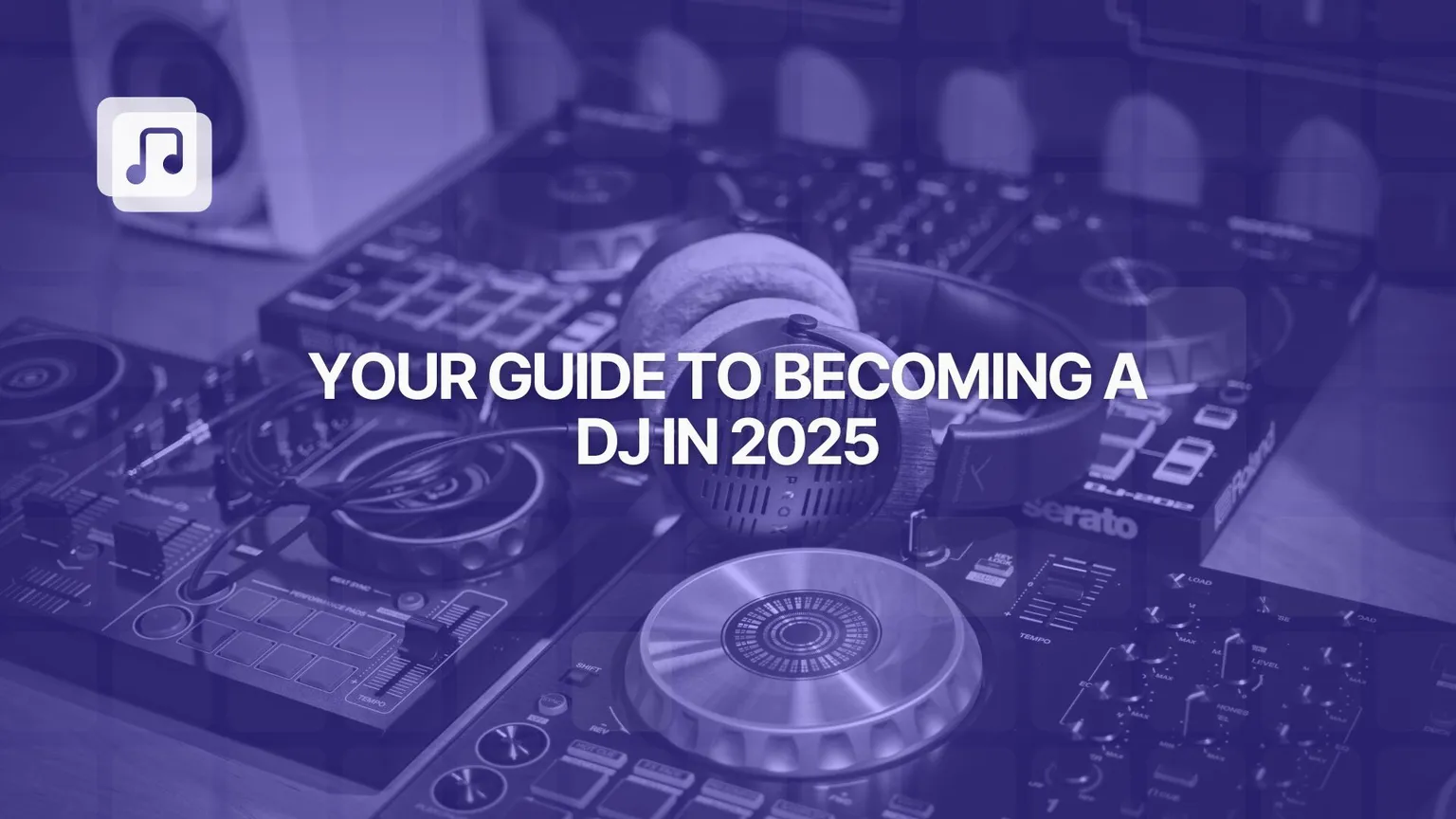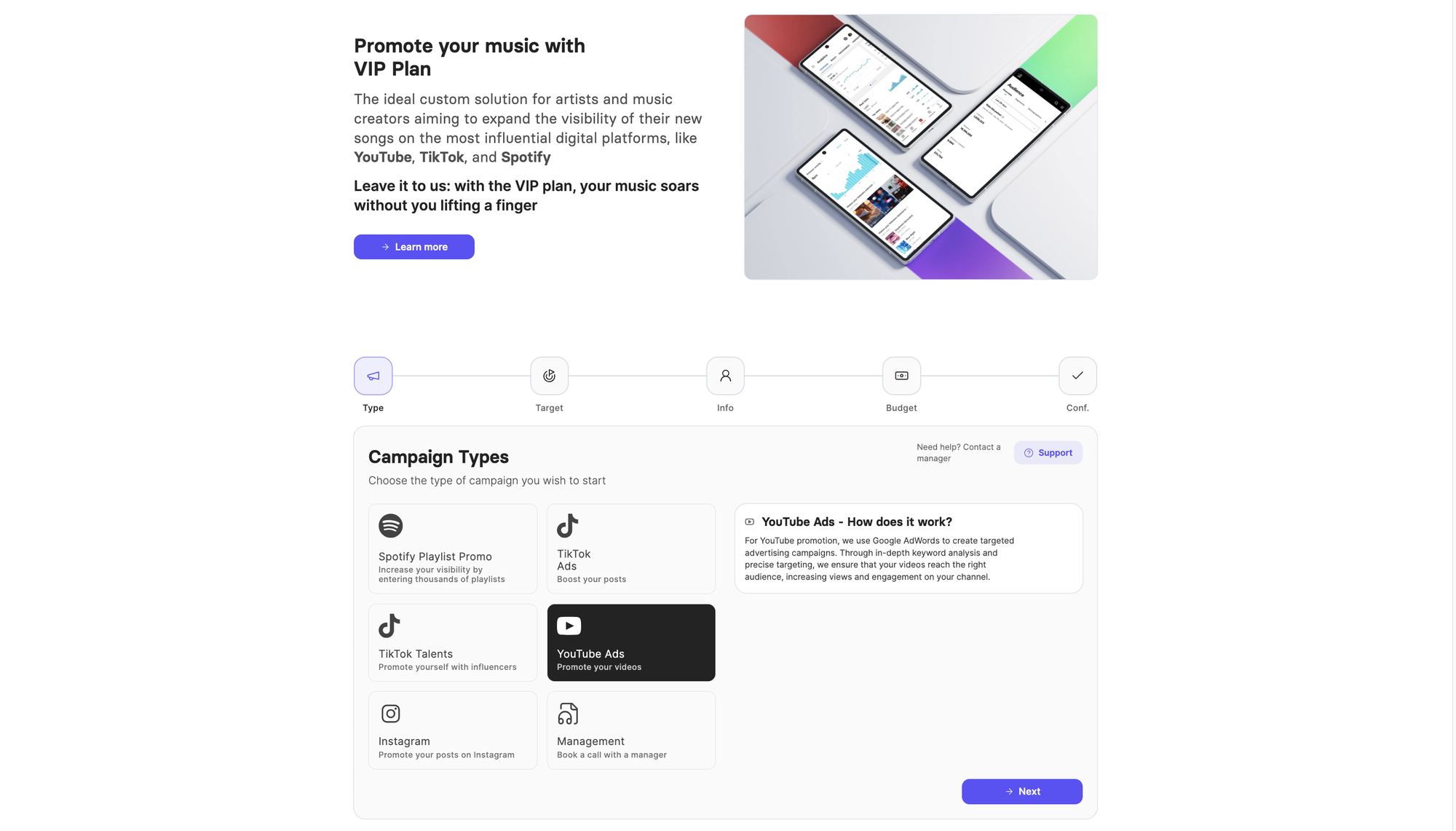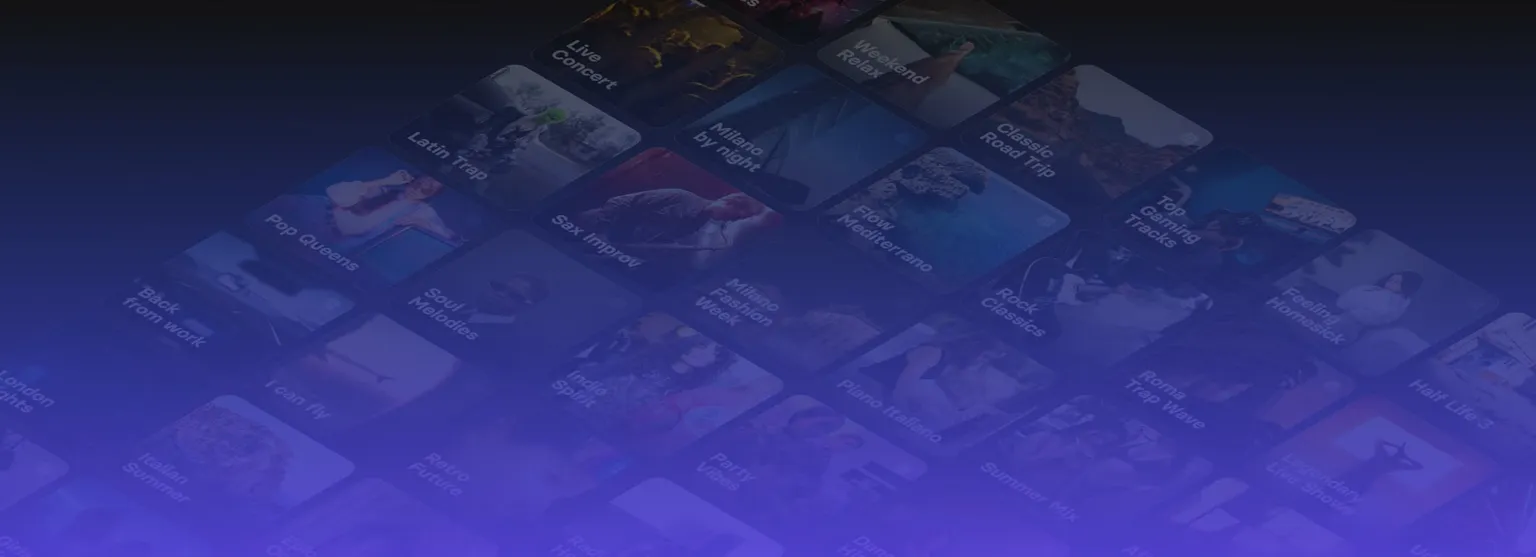
Becoming a DJ today means much more than just lining up tracks. It's a journey that blends technique, passion, creativity, and entrepreneurial spirit. If you're thinking about pursuing this path—whether you want to play in clubs, produce electronic music, or simply share your mixes with the world—you're in the right place. This step-by-step guide will help you build a solid foundation to become a successful independent DJ.
Here's what we're are goign to talk about:
- Understanding DJ techniques
- Choose the right equipment
- Build an organized music library
- Find your style and sonic identity
- Build your DJ brand
- Promote yourself through digital channels
- Record your sets and review your performances
- Build connections in the music world
- Start performing live
- Stay passionate and keep learning
Start with the basics: understanding DJ techniques
The first step is to learn how the craft works. You don’t need expensive gear right away—what really matters is mastering the fundamentals.
Concepts like beatmatching (syncing the tempo of two tracks), phrasing (understanding the musical structure to mix at the right time), and EQ control (balancing frequencies for smooth transitions) are essential for creating professional-sounding mixes. Advanced techniques like transitions, effects, and scratching can add extra flair to your sets.
You can start learning these techniques through YouTube tutorials, online courses on platforms like Skillshare or MasterClass, or by attending local music and DJ schools.
Choose the right equipment: controller, software and headphones
Once you've got a handle on the theory, it's time to get hands-on. But where to start? There's no need to spend thousands of euros right away—there are great entry-level solutions for beginners.
A DJ controller like the Numark Party Mix or the Pioneer DDJ-400 offers an intuitive and compact interface, often compatible with professional software. Speaking of software, Serato DJ, Traktor, and Rekordbox are among the most widely used worldwide. Pick one and dive in—getting to know your software deeply will help you express your style more effectively.
Don’t forget a good pair of DJ headphones. They’re essential for cueing tracks and keeping your mix tight, even in noisy environments.

Build an organized music library
A DJ is also a music curator. Having a well-organized collection of tracks is essential. Don’t limit yourself to just one genre—explore house, techno, hip-hop, trap, afrobeat, reggaeton, or whatever styles speak to you.
Organize your library into themed playlists by energy, BPM, vibe, or event type. This helps you adapt easily to different contexts, from private parties to club gigs.
Use platforms like Beatport, Bandcamp, SoundCloud, and even YouTube to discover new music, support fellow independent artists, and stay updated on new releases.
Find your style and sonic identity
Every professional DJ has a signature sound. To stand out in the music scene, it's not enough to be technically skilled—you need a recognizable voice, even if you're not singing.
Start building your identity by experimenting with different genres, BPMs, and moods. Mix classic tracks with underground gems, play with samples, tweak track structures.
Don’t be afraid to take risks—the more your personality shines through in your sets, the more memorable you'll be.

Build your DJ brand
In a competitive industry like music, knowing how to promote yourself is essential. In addition to musical talent, you need a strong and consistent image.
Choose a stage name that represents you, create a professional logo, and develop a solid online presence. Keep your profiles on Instagram, TikTok, YouTube, and SoundCloud up to date. Share content regularly—not just your mixes, but also behind-the-scenes clips, thoughts, and musical inspirations.
A consistent and recognizable brand can open many doors, from record labels to events and collaborations.
Promote yourself through digital channels
The internet is your showcase. More than ever, online visibility makes a difference. Use social media to build a community around your music, share your sets, create engaging short videos, and use Reels and TikTok to reach new audiences.
Platforms like Mixcloud, HearThis, and YouTube are perfect for publishing your DJ sets. If you also produce music, you can distribute your tracks on Spotify and Apple Music using services like DistroKid, TuneCore.
This is where platforms like Matchfy come in handy — they offer not only various types of promotion services but also music distribution. If you’re looking for an effective way to promote your music on social media, Matchfy offers the VIP Plan: you can choose customized campaigns to promote yourself on platforms like Spotify, YouTube, TikTok and Instagram. But that’s not all: Matchfy also allows you to distribute your music to Spotify, Apple Music, Deezer, Amazon Music and YouTube Music, all while keeping 95% of your royalties!

Record your sets and review your performances
Recording your sets is useful for both promotion and self-improvement. Listening back to your performances helps you evaluate what works and what doesn’t, improve transitions, and fine-tune the flow of your mixes.
You can use software like Audacity or record directly from your DJ software. Once ready, share your sets with your audience and ask for feedback to keep growing.
Build connections in the music world
Being a DJ isn't just about playing—it's also about being part of a scene. Attend music events, open deck nights, workshops, or electronic music fairs.
Talk to other DJs, promoters, producers, and fans. Every connection could turn into an opportunity—a collaboration, a gig, a remix. Your professional network is just as important as your technical skills.
Don't know how to build strong connections in the music industry? Don’t worry! We’ve created a simple and effective guide to help you develop a solid networking strategy that will boost your career. Find out more on our blog.
Start performing live
Don’t wait for an invite to a major festival—start playing wherever you can. Small venues, private parties, college events, live streams on Twitch or Instagram: every opportunity is a chance to gain experience, learn to read the crowd, and get comfortable with your gear in real-life settings.
Over time, these performances will give you exposure, confidence, and help you build your reputation.
Stay passionate and keep learning
Becoming a DJ is a journey, not a destination. Music constantly evolves, and so should you. Follow new trends, learn new techniques, listen to emerging artists, and keep feeding your creativity.
Be patient: success takes time, dedication, and a lot of passion. But if you truly love what you do, every step of the way will be part of your growth.
Conclusions
Becoming a DJ today is about much more than just mixing tracks—it's about building a personal brand, creating your unique sound and connecting with a community. It's a path that blends technical skill, creativity, and strategic self-promotion. While talent and dedication lay the foundation, knowing how to share your work and grow your network is what truly sets successful DJs apart.
That’s where platforms like Matchfy can make a real difference. Whether you're looking to distribute your music globally, promote your sets on the right channels, or connect with other professionals in the industry, Matchfy gives you the tools to grow independently—while keeping control of your art. From personalized promo campaigns to playlist pitching and royalty-friendly distribution, it’s built to support emerging talent like yours.
So take that next step, share your sound with the world, and let platforms like Matchfy help you turn your DJ journey into a sustainable, rewarding career.

